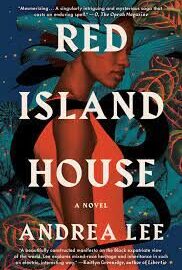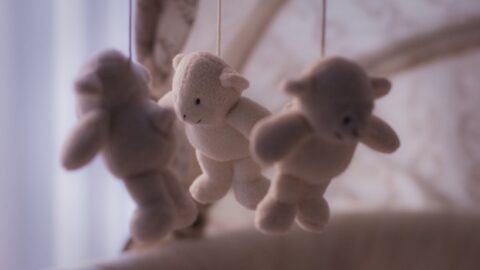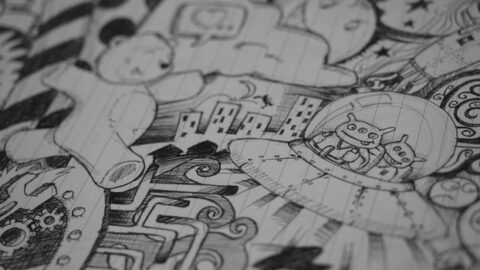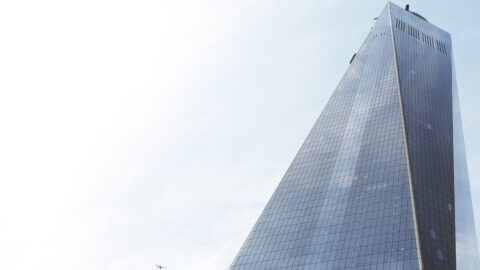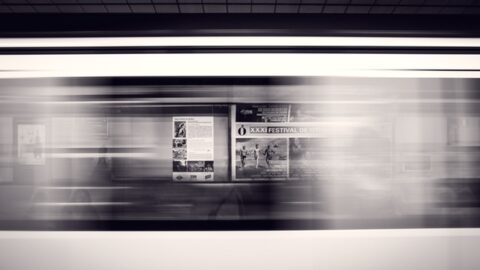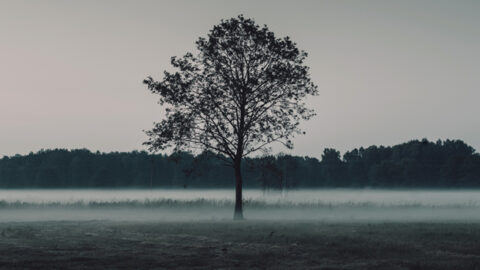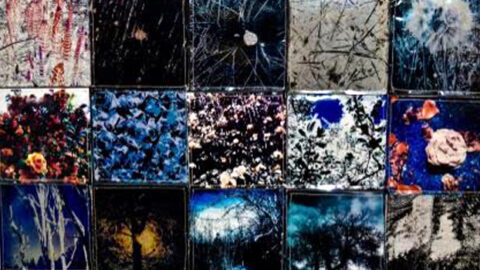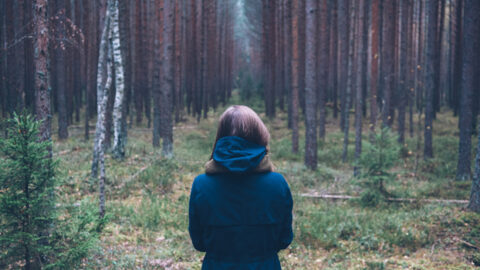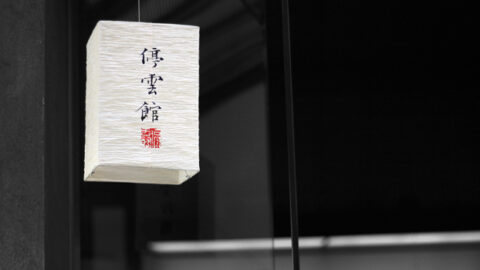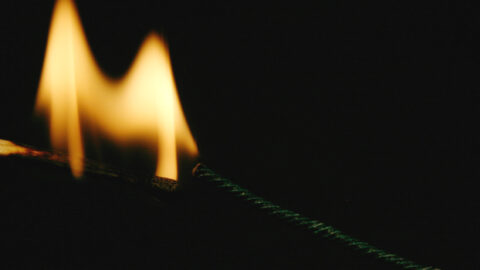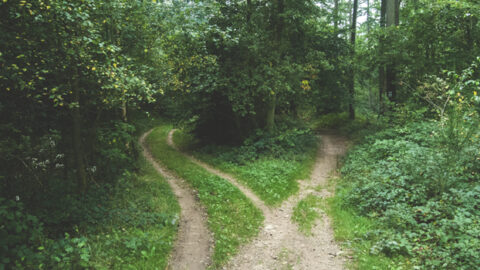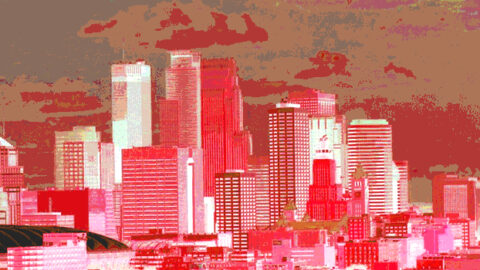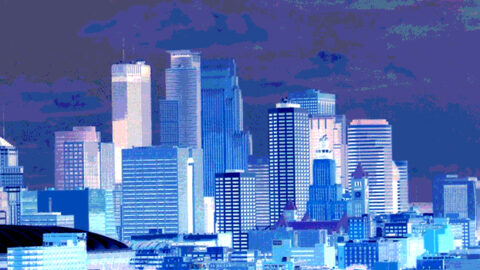What It Means To Be “Aunt Megan”
Today marks the day that Brielle is a month and a day old.
Who might Brielle be? Well, she’s my niece.
Inspire Your Writing: Space
Excerpts From My Notebook: A History of Bad Ideas Made Me A Better Writer
Going through old notebooks is like watching old videos of yourself: It highlights how embarrassing you used to be and what poor decisions you used to make.
Travel makes me pay attention. Discomfort helps, too.
In March 2016 I arrived in the Pico-Union neighborhood of Los Angeles with no context and no idea of how this city was laid out. (My fault; I did no research. Between grad school and work I hardly had the time to book a room, let alone look up things to do in the area. This is a familiar theme for me.)
‘What Cement is Made of’- An Interview with Daniel Donaghy
Daniel Donaghy is a writer, professor, father, and husband whose poetry evokes growing up in Philadelphia, the inspiration of his chapbook “What Cement is Made of,” a finalist for this year’s Anzaldúa Poetry Prize.
Empathy: The Science-Backed Fortune Cookie
From time to time, as artists and in our various other roles, we’ve all felt as though we are suffocating: Under the weight of a deadline. Under a pile of rejection letters. Under your peers’ seemingly-impossible successes. Or simply beneath the weight of a bad day.
“empathy for cars / force of July” – An Interview with Poet Davy Knittle
By day, Davy Knittle is a PhD student at the University of Pennsylvania, and by night he’s an award-winning poet. Knittle’s interest in and love of poetry was piqued during high school, when he was taught for a year by poet Yolanda Wisher. While much of Knittle’s life is dedicated to and his writing and his studies, he also enjoys simple things,
Strangers, Stations and Surprises: How I Learned to be Inspired by New York
“You shouldn’t be reading things like that. You ought to throw that book away,” came the final words of the woman on the train station platform as I slunk, tail between my legs, between the closing doors.
Having lived in the Empire State for more than a year now, I have become used to idle small talk.
But this was not enough to prepare me for the woman on the train station platform.
The Moon, Antarctica and Other Sites of Fruitful Solitude
Modest Mouse’s album, The Moon and Antarctica, was already five years old when I first heard it—as a file shared over AOL Instant Messenger. When I downloaded the file inside my dorm room at the beginning of sophomore year of college, I didn’t know it would become the soundtrack to some of the most delicious and productive solitude of my life.
How to Defend Your MFA: The Hairdresser’s Line of Inquiry
I was having my hair cut recently in my home town in the English countryside, enjoying a break from the perpetual motion machine of New York. Not a terribly interesting thing in itself, but when you’re in the summer bridging your two-year MFA program, with your thesis relentlessly vying for your attention, any moments in which you can sit and relax are worth noting. So there I was, happily trapped at the mercy of the hairdresser, trying to look uninteresting enough to avoid conversation, when:
“So what do you do?” she asks innocently.
Unleashing the Unconscious: Poetry, Place and Neuroscience in the Art of Kuma Kitsune
Above: Detail from Kitsune’s A Walk Through the Looking Glass.
Kuma Kitsune is a mixed-media artist and photographer living in Portland, OR. Her work incorporates a diversity of materials, such as fabric, projection film, tiny shreds of paper — and, in her most recent installment, other people’s poetry. More of her work can be seen here.
E. D. Watson: Your current work, A Walk Through the Looking Glass, is an assemblage of twenty-four individual pieces, titled with fragments of poetry produced by Hafiz, Ray Bradbury, Mary Oliver, Rimbaud and Lewis Carroll, which form a corresponding poem. Viewers are then invited to re-position the works and create their own poem from the new arrangement of the titles. Can you talk a little bit about how literature influences your work, and how you came to select these particular, seemingly disparate, writers?
Kuma Kitsune: I think what most influences my work is the Surrealistic concept of unleashing the unconscious.
The Panic of Writing
I’m halfway through a three-week writing retreat at the foot of the Blue Ridge Mountains in Virginia, and what has occurred to me over and over is how little time I build writing into my daily life, how haphazard it is, an afterthought, something I too easily cast aside.
Bad Kids at the Milk Tea Shop: Leisure Time, Reading and Writing in Chengdu and Neijiang, China
Luis Humberto Valadez was born and raised in Chicago Heights, Illinois. He received his MFA from the Jack Kerouac School of Disembodied Poets at Naropa. His publications include the poetry collection what i’m on from the University of Arizona Press (2009) and the book/music project Valid Lush from Plumberries Press. After completing a term of service with the Peace Corps in Neijiang, Sichuan, China, he was hired by Peace Corps China as a TEFL Manager and is currently based in Chengdu. More of his work can be found at here. Valadez takes his job supporting Peace Corps teachers seriously, and also tries to fit in a literary life.
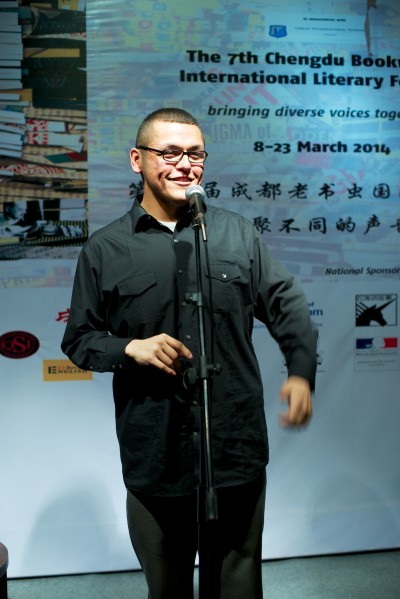
The Purpose of Subversive Writing, Or, The Pastor’s Wife Has Tattoos
Subversion has been on my mind for at least six months now. I like the way the word sounds when I say it out loud. It moves toward the front of my mouth, over my tongue and lips, rolls back toward my throat, and finally lands on the tip of my tongue at the end of the last syllable.
As the word “subversion” rolls around the mouth, it’s also a word, in action, that deconstructs and challenges. It’s a hard-working word, frightening to those who hold power. The word comes from the Latin subertere, meaning “to overthrow.” I love the definition of the word: “An attempt to transform established social order and its structures of power, authority, and hierarchy.”
Catching #FerranteFever
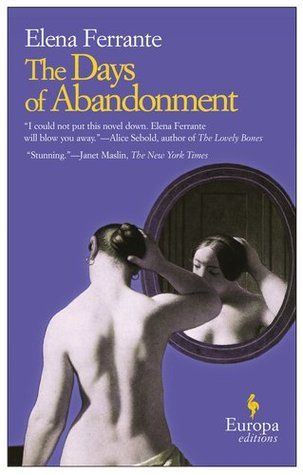 If Italian author Elena Ferrante knows about #FerranteFever, the social media hashtag used by fans to describe their obsession with her books, I’d be willing to bet the phenomenon makes her uncomfortable. Possibly, she’s rolled her eyes about it. That’s because, in this age of selfies and shameless self-promotion, Ferrante is something of an iconoclast, eschewing all public appearances and social media, granting few interviews, and fiercely guarding her true identity (Elena Ferrante is a pen name).
If Italian author Elena Ferrante knows about #FerranteFever, the social media hashtag used by fans to describe their obsession with her books, I’d be willing to bet the phenomenon makes her uncomfortable. Possibly, she’s rolled her eyes about it. That’s because, in this age of selfies and shameless self-promotion, Ferrante is something of an iconoclast, eschewing all public appearances and social media, granting few interviews, and fiercely guarding her true identity (Elena Ferrante is a pen name).
In a rare interview with the author in the spring 2015 issue of the Paris Review, Ferrante declares herself “still very much interested in testifying against the self-promotion obsessively imposed by the media. This demand for self-promotion diminishes the actual work of art, whatever that art may be, and it has become universal.” She then goes on to explain the creative space that opened up for her when she realized that her anonymity would be protected by her publishers. “[It] made me see something new about writing,” she says. “I felt as though I had released the words from myself.”
Getting Lost
I’ve been getting lost lately. I’m forty now; getting mixed up and turned around isn’t a problem I recall having as a twenty-something. It began one day in my late thirties when I went for a walk by myself in the subdivision where my brother lives with his family. Only the day before, I’d gone for a run with my seven-year-old niece, who rode her bike. She suggested we head to the back side of the subdivision, where I’d never been before. She was confident we wouldn’t get lost. I followed her, and as she promised, we made it safely back without incident. I thought I’d paid attention to the path she took.
Behind the Tweet: Memorable moments from AWP 15
I don’t tweet a lot. I hear Facebook is so yesterday, and I only look at Instagram while I’m in the bathroom—but Twitter is supposed to be where it’s at. As a writer, I find it hard to narrow my thoughts down to a mere 140 characters, including hashtags. But at AWP 15 in Minneapolis, I tried to get in on the fun and hit the highlights of my time there.
April 9: “Don’t let anyone consider your poems confessionalist. That’s crap.” –Jan Beatty, #AWP15
I went to “The Poem as a Bodily Thing” panel, where I heard some wonderful thoughts on poems as a, well, bodily thing. This quote by Jan Beatty (who’ve I’ve admired for a long time) definitely struck me. Her point was about sexism and how no one would ever consider a man to be a confessionalist poet. I’m a woman, I’m a poet, and I’ve most-definitely been labeled as confessionalist. Jan is a wise woman.
Apr 9: “It’s time to stop worrying about if people like you. You are grown-ass adults. Time to pack that away.” -@ElissaSchappell Amen! #AWP15
AWP 15: Something for Everyone — And Then Some
I’d been told many times how large AWP would be. Statistics were bandied about (550 panels and readings! 2000 presenters! Over 700 journals!) until the convention became something beyond comprehension. I worked on my schedule for three days before realizing how redundant it was to plan for something so full of activity and opportunity. Go with the flow, the behemoth seemed to demand.
The first of many panels that I saw was the enticingly titled “Sympathy for the Devil: Writing ‘Unlikable’ Characters.” As the name suggests, the panelists were dedicated to explaining why a character that you want to hang out with is not necessarily better than a character you would never want near your children. References as diverse as Humbert Humbert, Bullet in the Brain and the Devil, were supplemented with the panelists’ own readings about white supremacists, violent teenagers and puppy-drowners to create an enthralling mix of discomfort and fascination. Needless to say, it was not a reading for the faint of heart.
My Murderous Heart
Last year, I wrote a confessional essay in honor of the 2015 Lenten season about a time I nearly killed my ex-husband. It was recently published in The Cresset. Several of my friends read it, discovering that, at one time, I’d had a murderous heart. You never know, of course, if anyone will read your work or if it will go unnoticed. I had hoped for oblivion for this one mainly because it was difficult to know how friends and colleagues would react. I do a tolerable job of helping others think I’m homespun, normal—I think we all do this. It helps us gloss over the messiness of life and makes day-to-day interactions easier.
Assumptions in the Desert
“There was a wall. It did not look important. It was built of uncut rocks roughly mortared. An adult could look right over it, and even a child could climb it.” -The Dispossessed, Ursula K. LeGuin
We make assumptions. For example, as a writer, I make assumptions about my audience, about you. One of those assumptions is that you read, most of you widely, and many of you deeply. Since this blog is attached to a literary journal, it is very possible that some of you write. At the same time, I could be completely wrong. That is the nature of assumption after all.
Last week, my wife and I were driving through a small town in the Utah desert. The evening was approaching and I was hungry. The next town was probably an hour off. The problem was that we only passed two restaurants on the highway, China Star and Pizzaria. Take a moment to look at the pictures and you might make some assumptions of your own.


